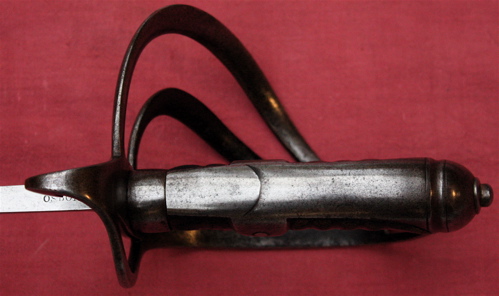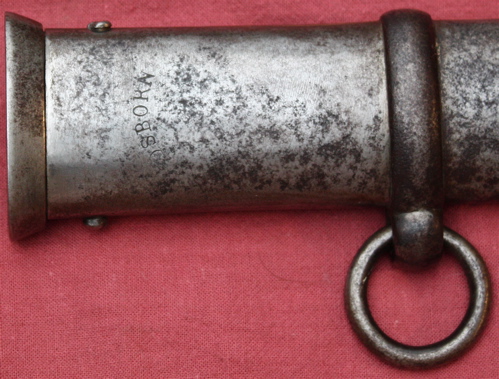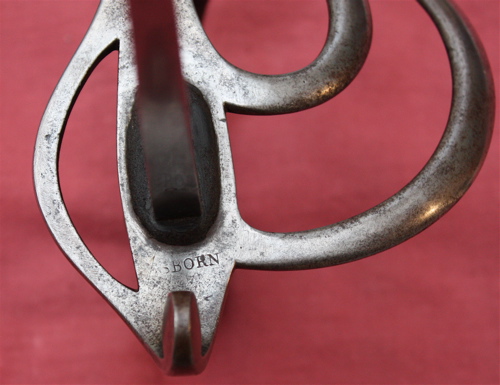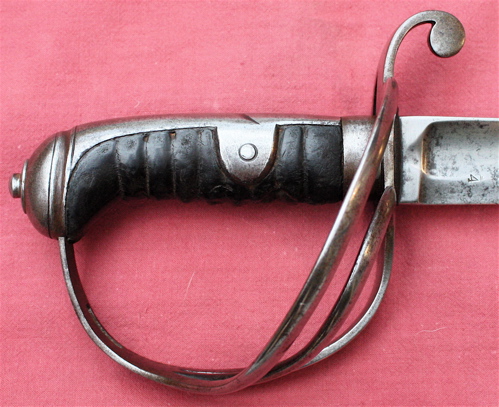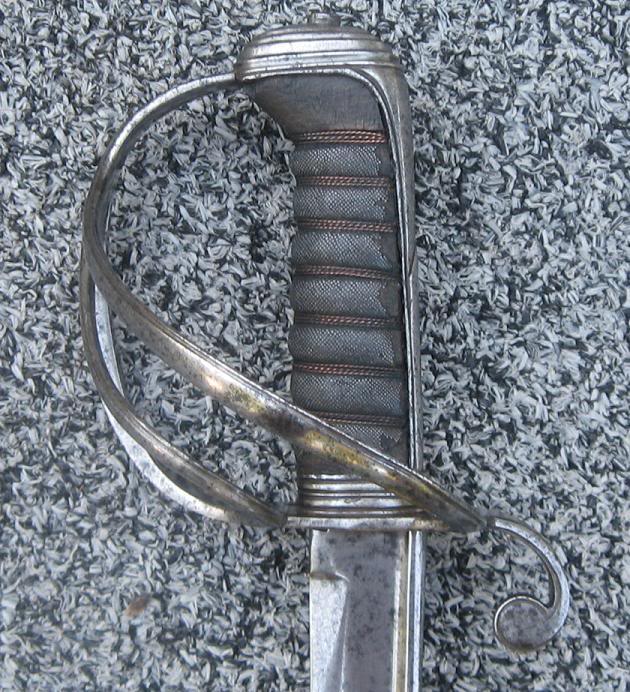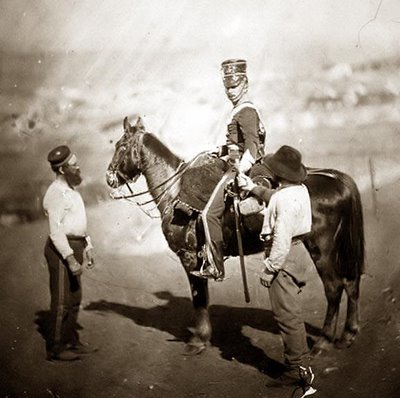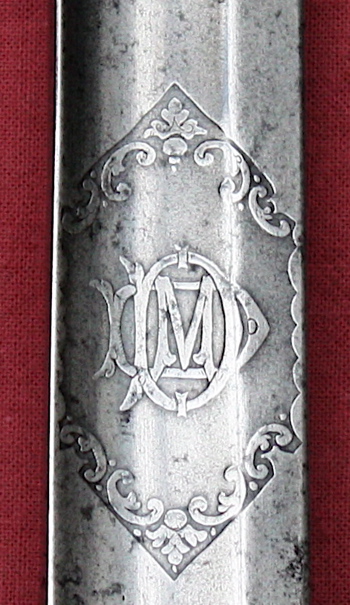Robson has a lot to say about this pattern, so I will summarize as best I can. The first record of this pattern is found in correspondence between the Adjutant-General's office and the Board of Ordinance (10 December 1821) calling for 296 swords "of the new pattern" to be issued to the 4th Light Dragoons. The blade followed the same principle of construction as the P1821 heavy cavalry trooper's sword, but with a three bar guard. The pattern marked the beginning of a long line of cut-and-thrust swords in the British cavalry (and indeed the infantry, artillery, etc.) which lasted throughout the 1800s. With plenty of P1796 LC swords for the yeomany, production of the P1821 LC began in March of 1823, with 6,000 being produced by 1825.
By 1827 complaints were made about the sword and scabbard being too light and constantly breaking or having to be repaired. A committee was formed in 1828 to address these concerns but its recommendations were not fully implemented. The modifications appear to be confined to increasing the weight of the blade and scabbard by a few ounces. The issue came up again in 1833 when a new sword design was submitted by a young cavalry officer (Lt. W. Miller, 8th
Hussars). RSAF Enfield did not find the design to be an improvement but did use its submission as an opportunity to revisit the findings of the 1828 committee. The proposal to enact any of the recommendations was rejected as large stores of the P1821 had already been produced.
In 1835 a further order for 1,000 HC swords brought the 1828 findings to light once again, and Enfield called for reports from all regiments which had received either 1821 pattern. The regiments had little criticism of the swords themselves, but rather the quality of manufacture, and a nearly unanimous opinion that the scabbards were too weak. Enfield felt that 3 criticisms were valid: that the LC guard was too constricted, the fullers were too deep, and the scabbards too weak.
Enfield modified a number of P1821 LCs to address the concerns. These were sent to regiments for comment. The modifications to the LC sword included a larger pommel and extended bars for more room for the hand, as well as new heavier gauge steel scabbards. The new hilt was not unanimously liked, and some felt the scabbard should be made of wrought iron because it was thought to be easier and cheaper to repair. In spite of this, no other changes were made to the pattern until it was superseded in 1853 by the new universal pattern.
Hopefully that helps a bit! If not, I recommend getting a hold of Robson's
Swords of the British Army through your local library. :)
Jonathan
PS--Here is a thread that might also be of some interest:
http://www.myArmoury.com/talk/viewtopic.php?t...light=1821

